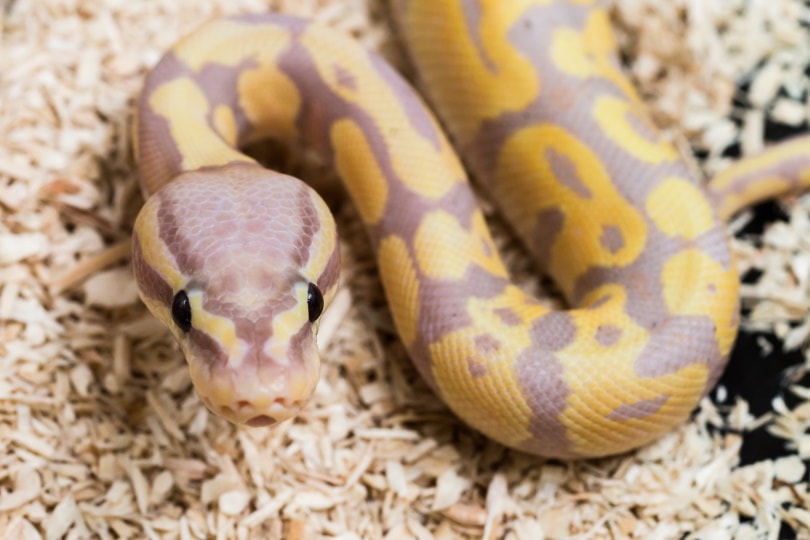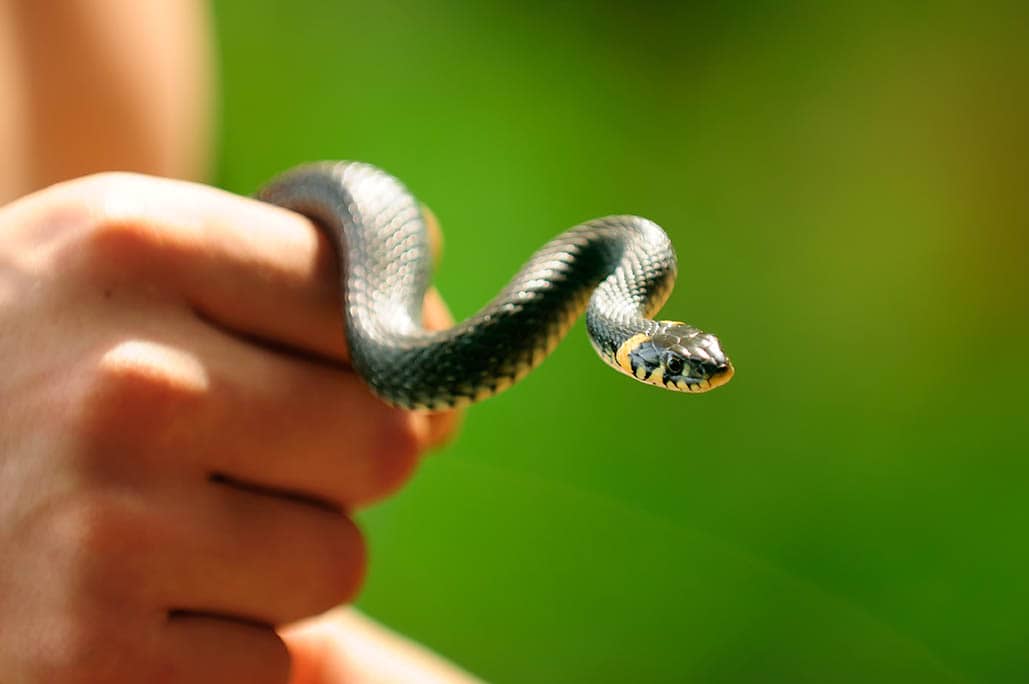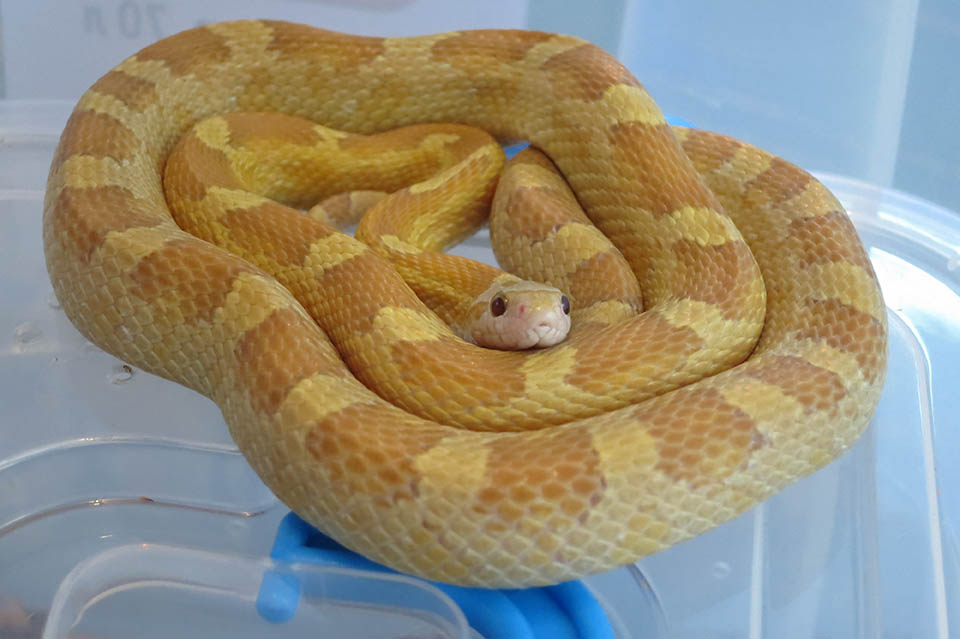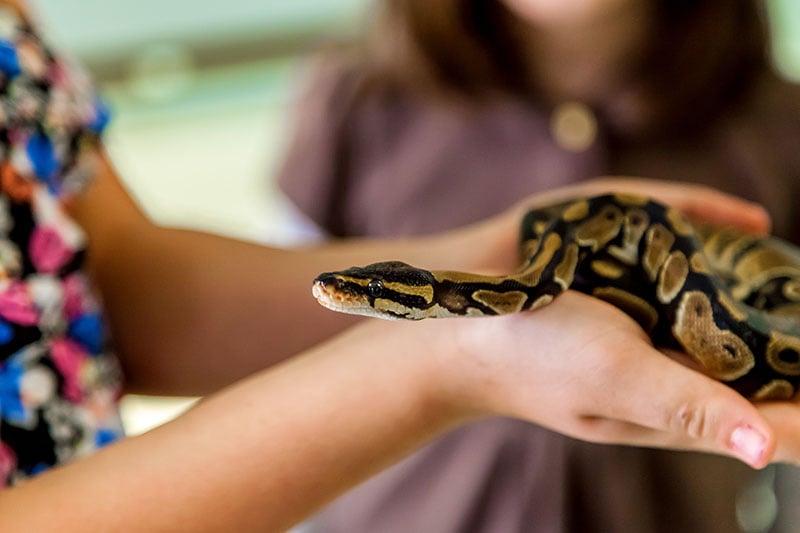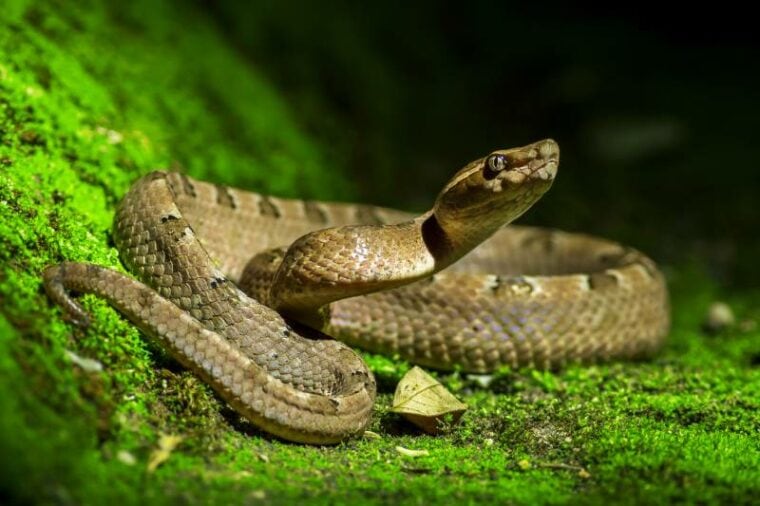
Adult cats and the average snake found in parts of the USA vary in size and weight. Would snake even consider attacking and eating a cat? It is quite plausible that a snake will attack a cat, depending on the circumstances of their encounter. The inverse is also true, and cats may attack snakes. Although cats are more resilient to snake venom than dogs, their smaller size means that a venomous snake bite can still cause serious health problems and should be treated as quickly as possible.
Cats and Snakes
If you live in an area with snakes and you let your cat outside, there is a chance that the two may encounter each other at some point. The naturally inquisitive cat will want to investigate the snake, and this can lead to your cat being bitten. Your cat may attack the snake, although they are unlikely to try to eat them. Owning cats may even help keep snakes away from your home, although this is not guaranteed.
Snakes will act defensively and may attempt to attack your cat if they feel threatened. Snakes are opportunistic animals, which means that they will attack small animals if given the opportunity. Domestic cats can qualify, and a snake might kill and eat a cat if they see the opportunity.
Cats are predators too, and naturally very inquisitive. They may view a small snake as a prey, or playtime practice, and may opportunistically pounce at or hunt them. It is not advised to allow your cat to hunt small animals, including snakes, as this disrupts the balance of local ecosystems drastically.
In a confrontation with a small snake, the cat usually triumphs. Being cold-blooded, the snake usually tires out faster than a cat does. This means that the presence of unsupervised roaming pet cats can be a serious drawback to the population of wild snakes.
An inexperienced cat might misconstrue a snake as a toy rope of sorts and end up getting bitten or injured as a result. If your cat is used to playing with a snake toy, they may not identify a wild snake as a threat and the confrontation might end poorly for one or both animals involved in the scuffle.

Can a Snake Bite Kill a Cat?
Snake bites are actually a common occurrence for both cats and dogs and can lead to death. The primary cause of death after a snakebite is venom-induced consumptive coagulopathy. This means that the animal loses the ability to clot blood and bleeds to death. Cats are more likely to survive snake bites than dogs, but bites do still kill cats.
There are two types of snake venoms, and the clinical signs depend on the type of venom that the cat was exposed to.
Cats are more resistant to venom on a milligram of venom to kilogram of body mass basis than dogs. This means that if a cat and dog of the same weight are exposed to the same amount and type of snake venom, the cat will be able to handle the venom better than the dog would.
That being said, the reality is that most cats usually have smaller body sizes than dogs do. As a result, cats that have been bitten by venomous snakes may present to veterinary clinics in a more serious condition.
- You May Also Like: Is There a Snake That Doesn’t Bite?
How Long Before a Cat Shows Signs of a Snake Bite?
The signs of a snake bite depend on the type of snake and the bite location on the cat. There will usually be two large puncture marks on the skin from where the fangs penetrated, but these can be difficult to spot unless you are looking specifically for them.
The signs vary depending on the type of the venom in the bite. As explained above, hematotoxins lead to blood clotting issues, whereas neurotoxins lead to nervous system signs.

What Should You Do if You Suspect a Snake Bite on Your Cat?
If you suspect that your cat was bitten by a snake, do not take any chances and take them to your emergency veterinarian promptly. Even if the snake was non-venomous, the bite wound itself requires medical treatment and a veterinarian’s expertise.
- You may want to read this next: 15 Snakes Found in Maryland
Final Thoughts
Snake bites can be fatal for cats and dogs. If your cat is showing signs of having been bitten by a snake or envenomed, you should take action and seek vet or animal hospital treatment as soon as possible. It is best to not allow pet cats to roam unsupervised, as this risks their safety as well as the safety of the local fauna and flora of your neighborhood.
- Related Read: Are There Snakes in Ireland?
Featured Image Credit: Worraket, Shutterstock



